Bolivia's Morales Declared Winner In Disputed Election
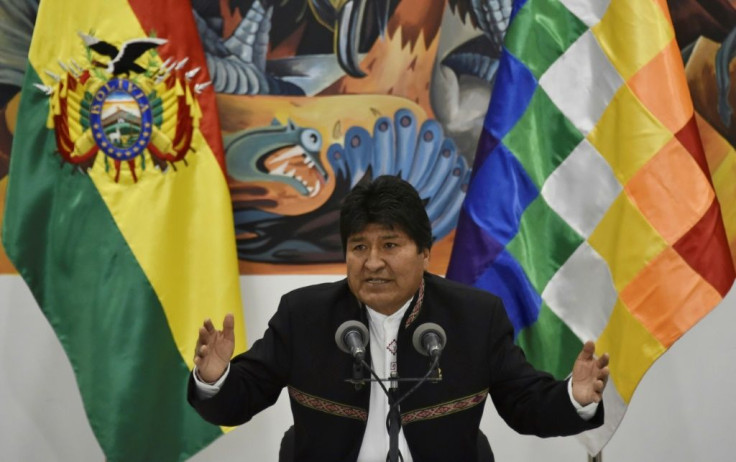
Bolivia's Evo Morales was officially declared the outright winner of presidential elections Thursday after a disputed vote count that triggered violent protests and furious allegations of fraud from the opposition.
The United States, European Union and Latin American countries responded to the result, which would hand Morales a fourth successive term, by calling for a run-off vote to restore trust and confidence in the electoral process.
With 99.99 percent of the ballots counted, the country's Supreme Electoral Tribunal (TSE) declared Morales had secured 47.1 percent of the vote, against 36.5 percent for his closest rival Carlos Mesa -- just scraping past the 10 point margin of victory required for an outright win.
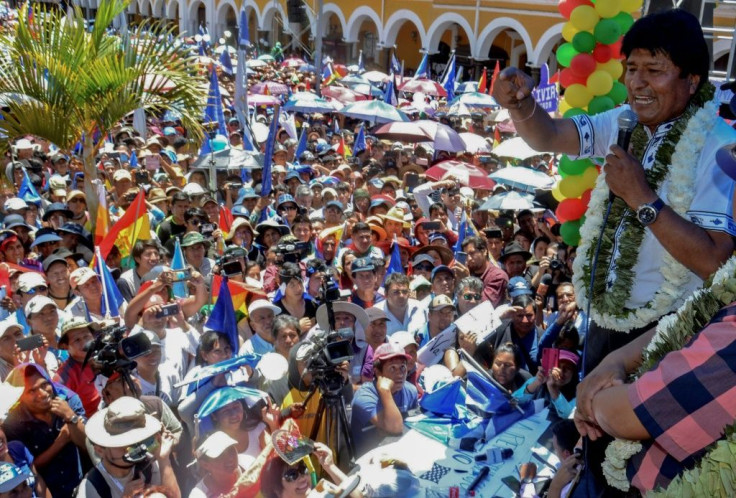
The Organization of American States (OAS) had expressed concern over the vote count, which first showed Morales and Mesa headed for a runoff, before shifting dramatically Monday to give the president a wider lead.
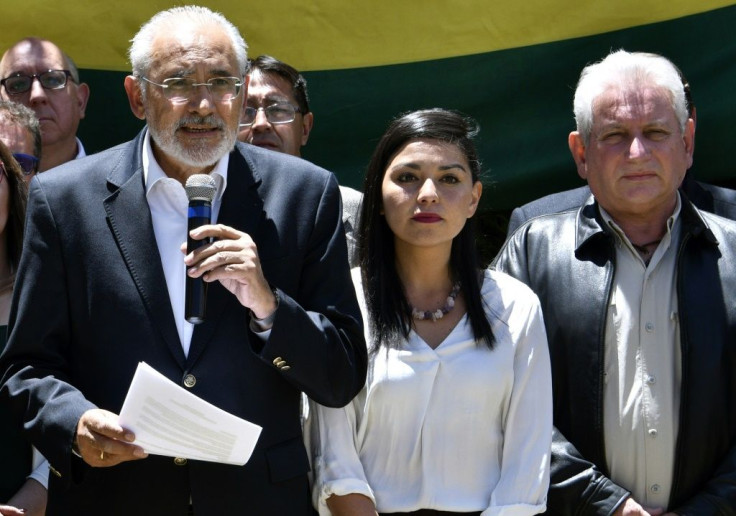
The European Union said Thursday it shared the OAS assessment "that the best option would be to hold a second round to restore trust and ensure the full respect of the democratic choice of the Bolivian people."
Violent protests have raged all week, and fresh clashes broke out Thursday between supporters of both sides in Santa Cruz, the economic capital and opposition stronghold.
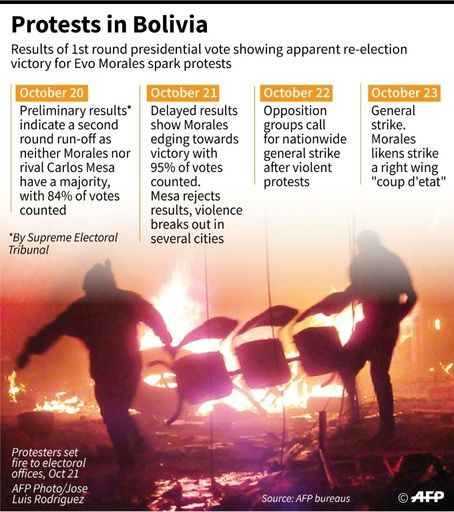
Offices in the city housing Bolivia's electoral authority were set on fire overnight, as security forces clashed with demonstrators in La Paz and elsewhere.
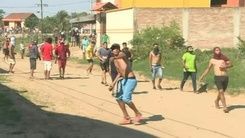
New mandate
The new mandate means Morales, already Latin America's longest-serving president, will remain in power until 2025.
He stood for a fourth successive term despite Bolivia's constitution limiting presidents to two consecutive mandates.
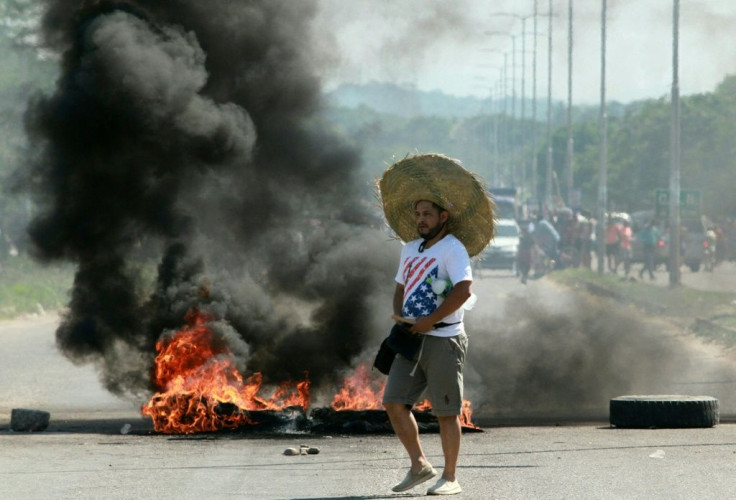
Mesa accused Morales's party, the Movement for Socialism (MAS), of "electoral fraud" after it declared Morales the winner before official results were announced.
Speaking at a rally in La Paz earlier Thursday alongside center and right wing parties as well as business leaders, Mesa called for a second round and urged his supporters to maintain pressure in the streets.
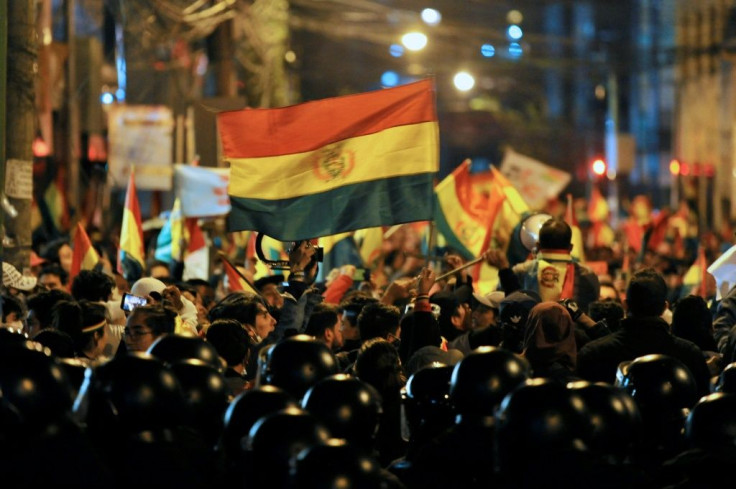
On Wednesday he said he would not recognize results tallied by the tribunal, which he accused of manipulating the count to help Morales win.
The TSE has been heavily criticized for its conduct of the count process, including by its own vice-president, who resigned.
'Restore credibility'
The governments of the United States, Brazil, Argentina and Colombia all called on Bolivia's government "to restore credibility in its electoral system" by allowing a second round run-off.
The US State Department updated its travel alert for Bolivia, urging "increased caution... due to civil unrest."
On Monday, after the release of partial election results showed Morales just ahead of Mesa, mobs torched electoral offices in Sucre and Potosi, while rival supporters clashed in La Paz.
A general strike went into force Wednesday.
Morales, 59, tried to change the term limits provision in Bolivia's constitution but lost a referendum on the subject in 2016.
A year later, though, he obtained Constitutional Court permission to run again.
Critics accuse him of filling the court with loyalists.
Morales points to a decade of economic stability and considerable industrialization as his achievements, while insisting he has brought "dignity" to Bolivia's indigenous population, the largest in Latin America.
© Copyright AFP {{Year}}. All rights reserved.





















